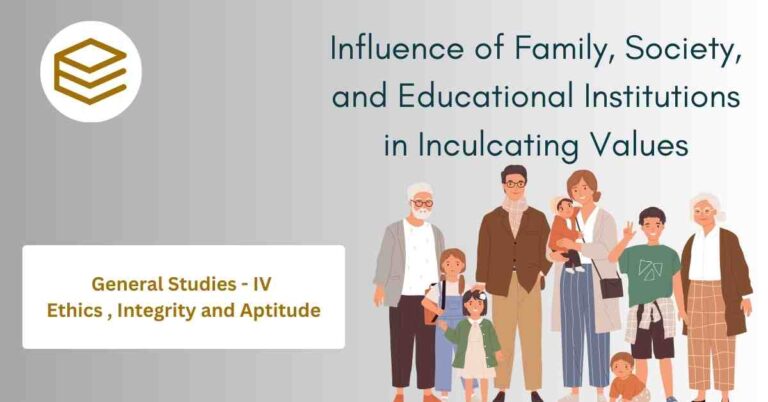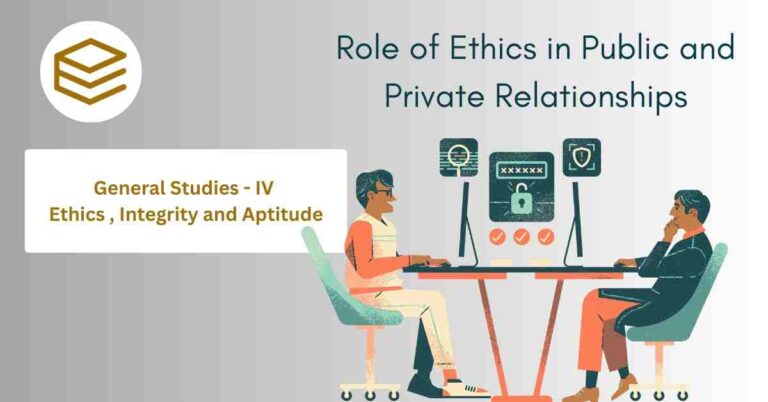January 25, 2026 4:29 am
Human values—such as compassion, integrity, justice, perseverance, and leadership—are the cornerstone of a just, peaceful, and progressive society. Throughout history, great leaders, reformers, and administrators have demonstrated these values in their actions and teachings, inspiring generations to strive for betterment. By examining their lives, we gain timeless lessons that guide us to navigate challenges, inspire change, and build a more equitable world.
The Essence of Human Values
Human values are universal principles that define our interactions with others and the world. These values transcend cultural, geographic, and temporal boundaries, forming the foundation of ethical decision-making and harmonious coexistence. Leaders and reformers not only embody these values but also show us how to practice them in the face of adversity. Let us explore these values in depth by looking at the lives of those who lived by them.
1. Compassion: Empathy as a Force for Change
Mahatma Gandhi: Compassion Through Non-Violence
Mahatma Gandhi’s philosophy of Ahimsa (non-violence) was rooted in profound empathy for all living beings. When millions suffered under British rule, Gandhi’s compassionate approach sought justice without hatred. His Salt March and Quit India movements were acts of peaceful defiance against oppression, guided by a deep understanding of others’ suffering.
Lesson: Compassion is not passive—it is a force for transformative action. It requires us to stand against injustice while remaining rooted in kindness and understanding.
Mother Teresa: Serving the Marginalized
Mother Teresa exemplified compassion through her work with the sick, poor, and dying. Founding the Missionaries of Charity, she provided dignity and care to those society often neglected. Her belief that “Not all of us can do great things, but we can do small things with great love” inspires millions to extend kindness in daily life.
Lesson: True compassion transcends boundaries of religion, nationality, or social status. Even small acts of empathy can create ripples of positive change.
2. Integrity: The Foundation of Trust
Abraham Lincoln: Honesty in Leadership
Abraham Lincoln, often called “Honest Abe,” epitomized integrity in his fight against slavery and his efforts to preserve the Union during the U.S. Civil War. His commitment to truth and fairness, even in the most challenging times, earned him the respect of allies and adversaries alike. His Emancipation Proclamation was not just a political act but a moral statement.
Lesson: Integrity builds trust, and trust strengthens leadership. Even in turbulent times, sticking to principles fosters lasting respect and unity.
Sardar Vallabhbhai Patel: Ethical Governance
Known as the “Iron Man of India,” Patel unified the nation’s princely states post-independence with transparency and fairness. His pragmatic yet principled approach ensured the integration of diverse territories into one cohesive nation.
Lesson: Integrity is about doing what is right, not what is easy. Ethical leadership paves the way for stability and progress.
3. Justice: Building Fair and Equitable Societies
Dr. B.R. Ambedkar: Champion of Social Justice
Dr. Ambedkar’s life was dedicated to dismantling caste discrimination and uplifting marginalized communities in India. As the chief architect of the Indian Constitution, he enshrined equality and justice for all citizens. His relentless advocacy for the rights of Dalits emphasized the need for systemic change to achieve fairness.
Lesson: Justice is not merely an ideal but an actionable commitment to uplift the disadvantaged and create opportunities for all.
Nelson Mandela: Reconciliation Over Retribution
After 27 years in prison, Nelson Mandela emerged not with bitterness but with a vision for a unified South Africa. By choosing reconciliation over vengeance, he laid the foundation for a nation where justice could heal rather than divide.
Lesson: Justice is most powerful when it seeks to heal wounds rather than deepen divides. Fairness must be paired with compassion for lasting peace.
4. Perseverance: Turning Adversity Into Triumph
Helen Keller: Triumph Over Disability
Despite being blind and deaf, Helen Keller’s determination led her to become a global advocate for disability rights. Her achievements, including earning a college degree and writing numerous books, inspired people to see potential in the face of seemingly insurmountable odds.
Lesson: Perseverance transforms obstacles into stepping stones. It teaches us that no challenge is too great when met with unwavering determination.
Theodore Roosevelt: Resilience in Leadership
Theodore Roosevelt faced personal tragedies and health challenges but emerged as one of America’s most impactful presidents. His “Square Deal” policies showed his dedication to fairness and hard work, while his conservation efforts safeguarded natural resources for future generations.
Lesson: Perseverance is about consistent effort. Leaders inspire by showing resilience in action, especially during tough times.
5. Leadership: Inspiring and Uniting Others
Winston Churchill: Visionary Leadership in Crisis
Winston Churchill’s leadership during World War II exemplified courage and inspiration. His rousing speeches, such as “We shall never surrender,” uplifted a nation under siege and motivated people to fight for freedom.
Lesson: Great leaders instill hope and courage, even in the darkest hours. Leadership is as much about emotional strength as strategic vision.
Aung San Suu Kyi: The Power of Moral Leadership
In her fight for democracy in Myanmar, Aung San Suu Kyi symbolized the strength of peaceful resistance. Despite years of house arrest, her commitment to freedom and justice never wavered, inspiring millions globally.
Lesson: Leadership is not about authority but about standing firm in one’s values, inspiring others to strive for justice and equality.
6. Reform: Transforming Societies
Raja Ram Mohan Roy: Enlightened Social Reform
Raja Ram Mohan Roy fought against the evils of Sati and child marriage in 19th-century India. He championed women’s rights and education, laying the groundwork for modern Indian society. His progressive ideals bridged tradition with modernity.
Lesson: True reform requires courage to challenge deep-seated prejudices while building a vision of a more enlightened future.
Martin Luther King Jr.: Dreaming of Equality
Martin Luther King Jr.’s leadership in the Civil Rights Movement emphasized peaceful protest as a means of challenging systemic racism in the United States. His “I Have a Dream” speech continues to inspire the world to envision a society free from discrimination.
Lesson: Social reform demands both moral conviction and the willingness to take bold, peaceful action for change.
7. Administrative Vision: Balancing Power with Service
Kautilya (Chanakya): Ethical Statecraft
In his Arthashastra, Kautilya laid out principles for governance that balanced authority with welfare. He emphasized the importance of a just ruler who prioritizes the well-being of citizens above personal gain.
Lesson: Effective administration requires a delicate balance between exercising power and serving the public good.
Franklin D. Roosevelt: The New Deal
Facing the Great Depression, Franklin D. Roosevelt implemented the New Deal, which redefined the role of government in providing economic security. His leadership during this crisis reflected empathy for citizens and bold decision-making.
Lesson: Administrators must innovate and act decisively during crises, always keeping public welfare at the forefront.
8. Visionary Thinking: Envisioning a Better Future
Albert Einstein: The Value of Curiosity
Einstein’s groundbreaking scientific contributions were matched by his philosophical reflections on peace, education, and human curiosity. His advocacy for intellectual freedom demonstrated the importance of thinking beyond immediate concerns to address humanity’s larger challenges.
Lesson: Visionary thinking challenges norms, pushing humanity toward progress and innovation.
A.P.J. Abdul Kalam: Inspiring Generations
Dr. A.P.J. Abdul Kalam, known as the “Missile Man of India,” inspired millions with his vision for a self-reliant and developed India. Through his work in science and education, he motivated young people to dream big and work hard.
Lesson: Visionaries empower others by sharing their dreams and providing a roadmap to achieve them.
Conclusion
The lives and teachings of great leaders, reformers, and administrators serve as a timeless repository of wisdom. Compassion, integrity, justice, perseverance, leadership, reform, and vision are not just abstract ideals but actionable principles that can transform individuals and societies. In a world fraught with challenges, these values offer a guiding light, reminding us of our shared humanity and potential for greatness.
Call to Action: Let us reflect on these values and strive to embody them in our own lives. By learning from these exemplary figures, we can contribute to a world that values empathy, fairness, and resilience, paving the way for a brighter future.





